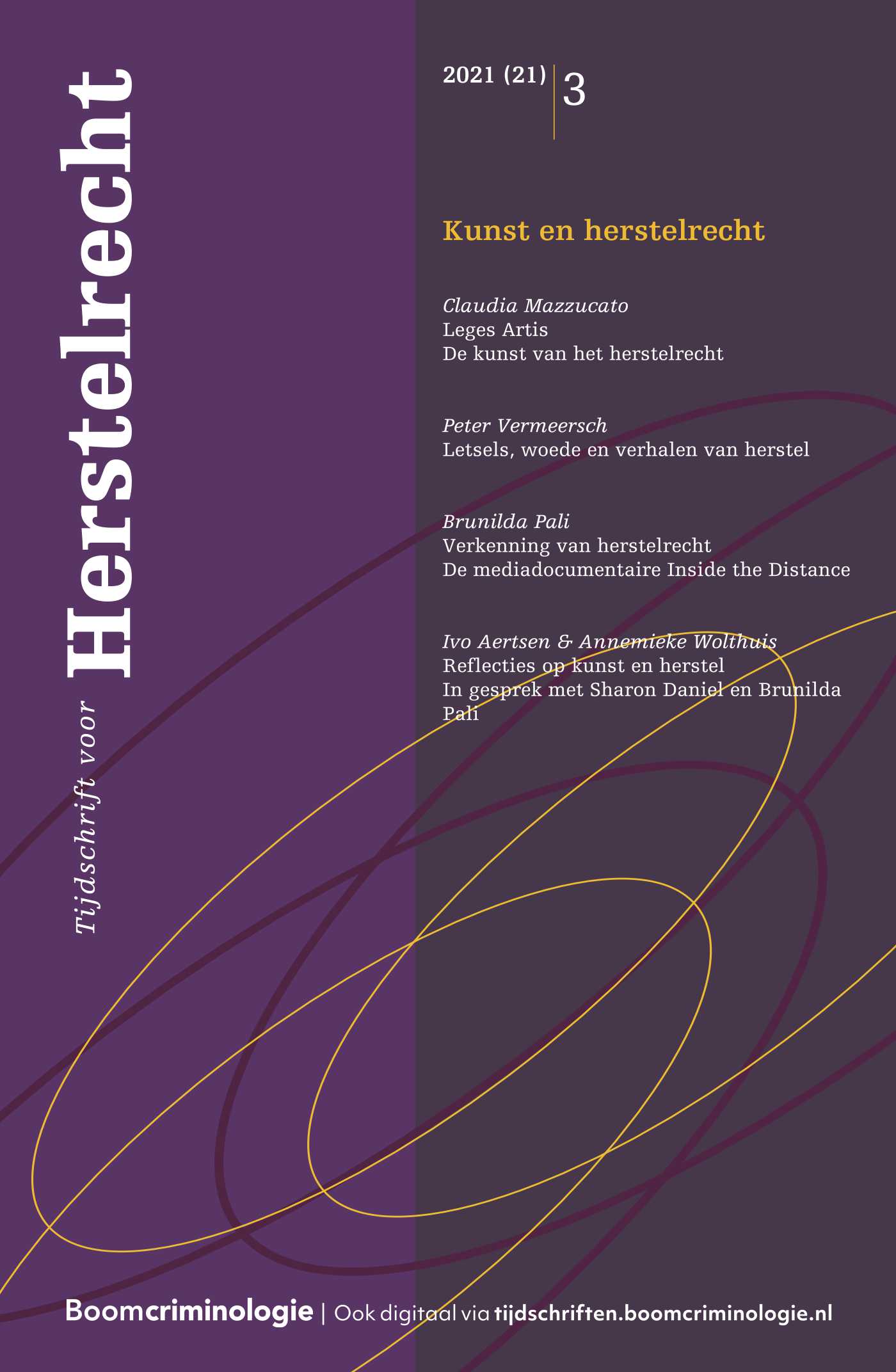|
In this contribution, the justification of restorative practices in prison is first discussed from a normative perspective. On the basis of Lippke’s retributive theory of imprisonment it is argued that modern, humane retributive sanctioning entails an obligation to provide prisoners with opportunities to engage in restorative practices. Second, restorative practices in prison are examined from the perspective of possible impacts on the empowerment of prisoners and their experience to move away from crime and do good. Finally, it is argued that in order to yield positive effects, restorative practices in prison need to be supported by a safe and healthy living environment. |


Tijdschrift voor Herstelrecht
Meer op het gebied van Mediation en herstelrecht
Over dit tijdschriftMeld u zich hier aan voor de attendering op dit tijdschrift zodat u direct een mail ontvangt als er een nieuw digitaal nummer is verschenen en u de artikelen online kunt lezen.
| Column |
Herstellingen!Over het waardig dragen van schokkend justitieel onrecht |
| Auteurs | Frans Douw |
| Auteursinformatie |
| Redactioneel |
Herstelgerichte detentie: kansen en uitdagingen |
| Auteurs | Jacques Claessen, Manon Elbersen, Kris Vanspauwen e.a. |
| Auteursinformatie |
| Artikel |
Gevangenissen en herstel: reflecties over nut en noodzaak van een herstelgerichte detentiepraktijk |
| Trefwoorden | Retribution, desistance, behavioural change, empowerment, remoralization |
| Auteurs | Peter Nelissen |
| SamenvattingAuteursinformatie |
| Artikel |
Daders en herstel tijdens detentie: de cursussen Puinruimen, SOS en DAPPER |
| Trefwoorden | Puinruimen, SOS, DAPPER, Herstelgerichte cursus, detentie |
| Auteurs | Sven Zebel, Marieke Vroom en Elze Ufkes |
| SamenvattingAuteursinformatie |
|
The Dutch Custodial Institutions Agency (DJI) strives for a more restorative prison culture in the Netherlands, incorporating a more victim-oriented and restorative way of working in prisons. To this end, DJI has asked for a plan and process evaluation of three restorative courses among (juvenile and adult) prisoners in the Netherlands: Puinruimen, SOS and DAPPER. This article first offers an overview of the most important findings of this evaluation which was finalized in 2016. Based on the findings of the plan evaluation, a cautious yet clearly positive picture emerges of the design and substantiation of each of the three courses examined. That is, an extensive description and substantiation exists of each course. In addition, evidence exists in the (limited) scientific literature for one of the goals that each of these courses have formulated: to increase prisoners’ awareness of the consequences of crime for victims. The literature also suggests that creating trust among participants and a safe group process during the course is helpful in attaining the goals formulated. The process evaluation of the execution of the three courses in practice further strengthens the cautious, yet positive picture painted by the plan evaluation. An examination of the experiences of the courses’ participants lends further support to the observation that these courses can attain part of their goals. For example, after the course participants were more positive about the added value of victim-offender mediation for them personally than before. |
| Praktijk |
‘Achter de Spiegel’: slachtoffers en daders op zoek naar dialoog |
| Auteurs | Davy Dhondt |
| Auteursinformatie |
| Praktijk |
Herstelgericht werken met gedetineerden en hun naastbestaandenWerken aan verbinding in een geïsoleerde context |
| Auteurs | Hannelore Pintelon |
| Auteursinformatie |
| Praktijk |
Herstelgerichte detentie in Nederland 2017 |
| Auteurs | Gert Jan Slump |
| Auteursinformatie |
| Praktijk |
Herstelbemiddeling tijdens detentieEen voorbeeld uit de praktijk van Perspectief Herstelbemiddeling |
| Auteurs | Mariëlle van den Berg |
| Auteursinformatie |
| Boekbespreking |
Gevangeniswetten |
| Auteurs | Renée Kool |
| Auteursinformatie |
